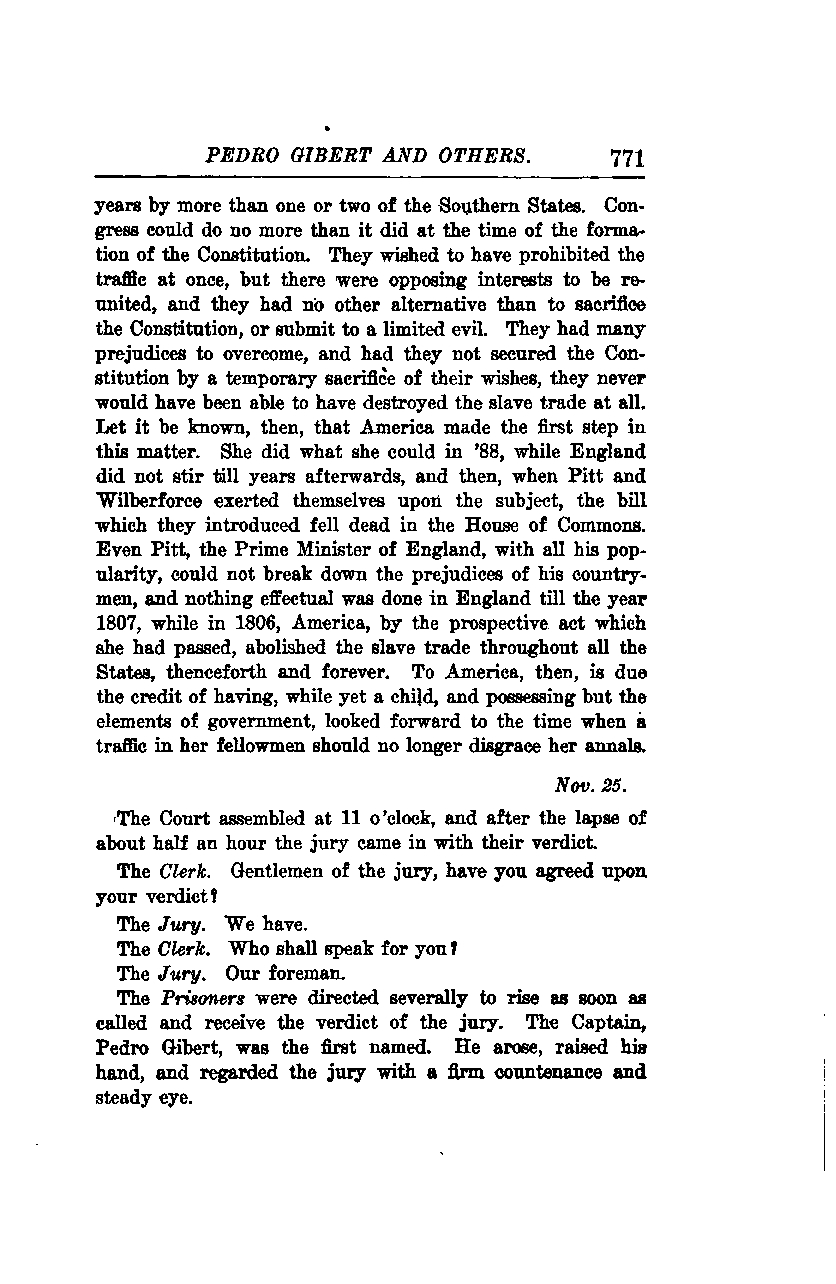
Here is the translated text as follows:
PEDRO GIBERT AND OTHERS
For years, more than one or two of the Southern States resisted. Congress could do no more than it did at the time of the formation of the Constitution. They wished to have prohibited the traffic at once, but there were opposing interests to be reconciled, and they had no other alternative than to sacrifice the Constitution or submit to a limited evil. They had many prejudices to overcome, and had they not secured the Constitution by a temporary sacrifice of their wishes, they never would have been able to destroy the slave trade at all.
Let it be known, then, that America made the first step in this matter. She did what she could in '88, while England did not stir until years afterward. Even when Pitt and Wilberforce exerted themselves on the subject, the bill they introduced fell dead in the House of Commons. Even Pitt, the Prime Minister of England, with all his popularity, could not break down the prejudices of his countrymen, and nothing effectual was done in England until the year 1807. Meanwhile, in 1806, America, by the prospective act she had passed, abolished the slave trade throughout all the States, thenceforth and forever. To America, then, is due the credit of having, while yet a child and possessing but the elements of government, looked forward to the time when a traffic in her fellowmen should no longer disgrace her annals.
November 25
The Court assembled at 11 o'clock, and after the lapse of about half an hour, the jury came in with their verdict.
The Clerk: "Gentlemen of the jury, have you agreed upon your verdict?"
The Jury: "We have."
The Clerk: "Who shall speak for you?"
The Jury: "Our foreman."
The prisoners were directed severally to rise as soon as called and receive the verdict of the jury. The Captain, Pedro Gibert, was the first named. He arose, raised his hand, and regarded the jury with a firm countenance and steady eye.